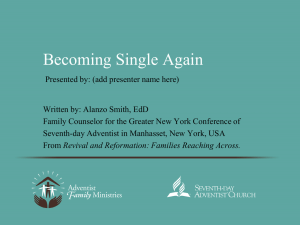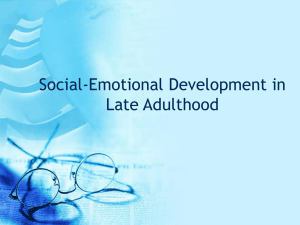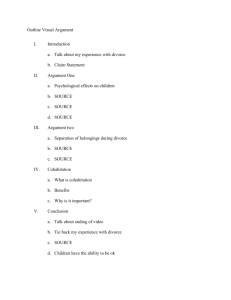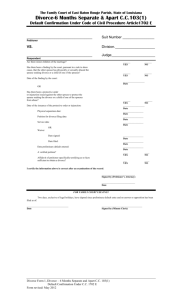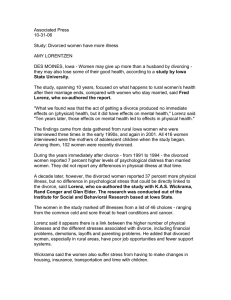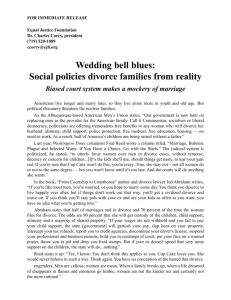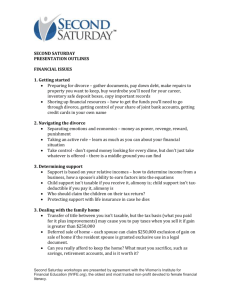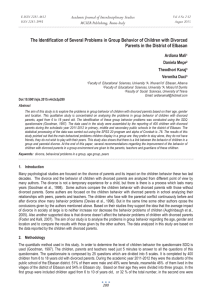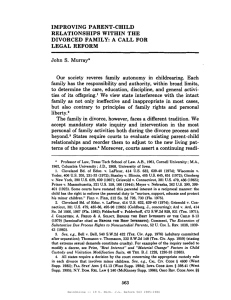Latter-dayS aint Men Divorce
advertisement
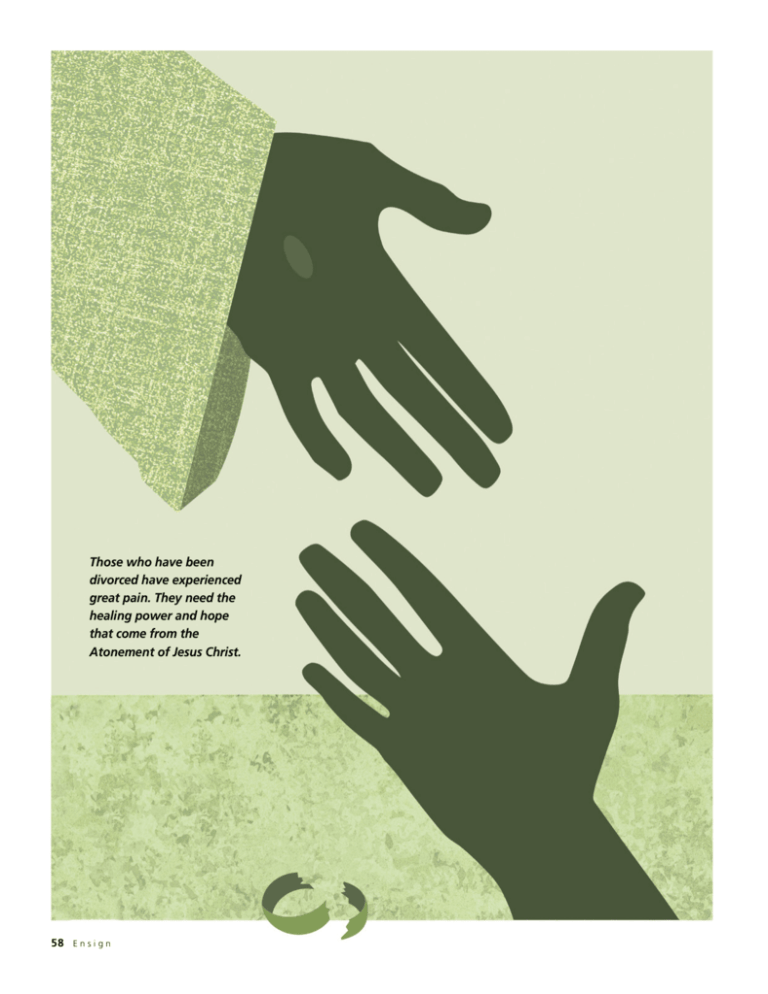
Those who have been divorced have experienced great pain. They need the healing power and hope that come from the Atonement of Jesus Christ. 58 E n s i g n Latter-day Saint Men and By S. Brent Scharman Retired Counselor, LDS Family Services T Divorce ILLUSTRATIONS BY J. BETH JEPSON he ultimate purpose of all we teach is to unite parents and children in faith in the Lord Jesus Christ, that they are happy at home, sealed in an eternal marriage.” 1 In spite of this inspired teaching from President Boyd K. Packer, President of the Quorum of the Twelve Apostles, divorces take place. Divorce is traumatic: those involved can experience feelings of shock, denial, confusion, depression, and anger, as well as physical symptoms such as disrupted sleep and eating patterns. In my experience as a counselor, I found that, although much of what men and women experience in divorce is the same, there are some differences: • While still married, men are more likely to minimize the seriousness of marital problems. Their surprise at divorce can lead to a feeling of instability. • Men are less inclined to share their feelings, so they can be less likely to learn from their experience. • Men tend to be action oriented, so they may be less inclined to seek counseling and instead bury their feelings by working long hours or immersing themselves in a hobby. • Because of financial concerns and the blow to their ego, some men experience challenges like depression, weight gain, experimenting with alcohol, and becoming less active in the Church. The only safe path through a divorce is to remain true to the gospel. Healthy adjustment requires an ability to be kind when you may not feel like it, to maintain confidence Although a strong marriage is the ideal, some marriages unfortunately end in divorce. If you are divorced, here are some ways to stay close to your children and strong in the gospel. and self-worth, to be able to tolerate painful feelings while continuing to function, to be patient with others involved, to be fair and non-vindictive, and to maintain a solid spiritual foundation, which can draw you closer to the Lord, who has “descended below” all things and whose Atonement is sufficient to heal and lift you (D&C 122:8). Regardless of who was at greater fault in your divorce, healing won’t come until there is repentance and forgiveness. As President Dieter F. Uchtdorf, Second Counselor in the First Presidency, taught: “We must let go of our grievances. . . . Remember, heaven is filled with those who have this in common: They are forgiven. And they forgive.” 2 Maintaining a Relationship with Your Children Perhaps no single issue provokes power struggles more than child custody. When children spend most of their time with their mother, it is easy for the father to feel like he has become a visitor to his own children. This may make him feel powerless and controlled by the system. However, unless there is potential for abuse or other harmful interaction, children do best when they maintain relationships with both parents. Fortunately, most former spouses learn to cooperate for the benefit of their children. A u g u s t 2 0 1 5 59 HOPE FOR YOU AND YOUR CHILDREN “We know that some look back on their divorces with regret at their own partial or predominant fault in the breakup. All who have been through divorce know the pain and need the healing power and hope that come from the Atonement. That healing power and that hope are there for them and also for their children.” Elder Dallin H. Oaks of the Quorum of the Twelve Apostles, “Divorce,” Ensign, May 2007, 71. Regular interaction with your children should remain a high priority, regardless of distance or remarriage. Even if the allotted time is not all you desire, make the visits positive and never say negative things to the children about their mother. Children are most likely to adjust successfully to parental divorce when their mother and father are willing to put the happiness and stability of children ahead of their own hurt feelings. Staying Active in the Church Some men have said that nothing shook their testimonies like divorce. This is particularly true if they have been faithful in Church activity and have prayed fervently for a resolution to marital problems. This shaken feeling can leave a divorced man uncomfortable with Church attendance, especially if he believes that others are assuming he has been unfaithful to his wife. Yet continuing Church activity exposes us to correct principles and surrounds us with The only safe path through a divorce is to remain true to the gospel. caring people. If Church members don’t seem to reach out to you, don’t be resentful. They likely don’t know what to do or say. Be patient and reach out yourself. Find a support network. Counsel with your quorum president, bishop, or stake president and consider professional counseling, such as with LDS Family Services, if available. This will help you examine your own behavior and see things more accurately. Divorced men are welcome in the Church in the same manner as married men. Elder Dallin H. Oaks of the Quorum of the Twelve Apostles said, “There are many good Church members who have been divorced” and reiterated that “unless a divorced member has committed serious transgressions, he or she can become eligible for a temple recommend under the same worthiness standards that apply to other members.” 3 Growing through Difficulties Some men say that although they would never want to go through such an experience again, they have learned from it. They recover and move forward with their lives. Such an approach was expressed by this man I counseled: “I still have a hard time grasping the concept that I’m a divorced man, but I am. I never expected it, but it happened, and I accept it. My goal now is to do all I can to remain faithful to Christ, build a strong new marriage, and be as good a model to my children and stepchildren as I can.” ◼ The author lives in Utah, USA. NOTES 1. Boyd K. Packer, “The Shield of Faith,” Ensign, May 1995, 8. 2. Dieter F. Uchtdorf, “The Merciful Obtain Mercy,” Ensign, May 2012, 77. 3. Dallin H. Oaks, “Divorce,” Ensign, May 2007, 70. 60 E n s i g n
